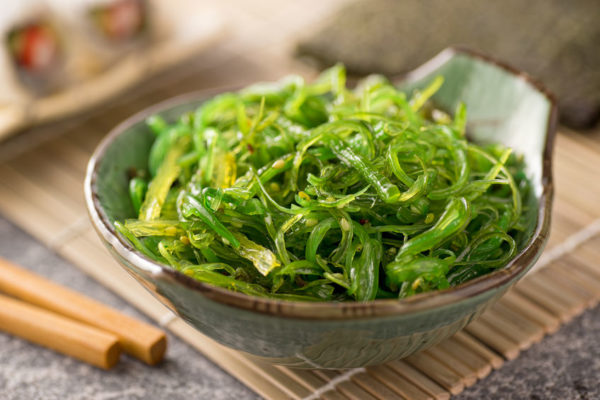By Sean Zucker –
The flavor and benefits of seafood dishes are well known. Sushi is diverse and malleable, lobster is a buttery staple of luxury and salmon is one of the most delicious and nutritionally dense foods around. But it may be what grows around these dishes under the sea that offers the most taste and nutritional impact. The dietary and culinary appeal of seaweed continues to explode, and for good reason – it’s versatile, sustainable and above all tasty.
Seaweed, also known as sea vegetables, refers to edible multicellular red, green or brown algae. With a dietary history dating by to prehistoric times in China, Japan and Korea, it’s a wonder it hasn’t caught on in the US sooner.
Seaweed Health Benefits
Possibly its most glaring and unique feature is the level of Iodine it contains. Iodine is a mineral essential to humans for producing thyroid hormones. It’s not only essential, but it is also too often in short supply. Despite thyroid hormones playing a key role in controlling the body’s metabolism and proper brain and bone development, one-third of the population is estimated to be at risk of Iodine deficiency. Luckily, correcting this may be as simple as incorporating seaweed into our diet, as it is one of the most reliable natural sources of Iodine on the planet.
Even beyond Iodine, sea veggies are a great source of numerous essential vitamins and minerals the body craves. Similar to many land vegetables, seaweed contains vitamins A and C. However, lending it to superfood ranks is its additionally dense in potassium, iron, calcium, and magnesium. It’s also one of the few vegetable sources of vitamin B-12, making it a great option for vegans and vegetarians.
Seaweed has actually become a favorite for those on a plant-based diet due to its function as an alternative source of protein. According to a recent Teagasc Irish study, seaweed is one of the best non-meat options for protein consumption, packing 6 grams of it per 100 grams, only 2 grams less than that of tofu.
And the Irish aren’t the only Celts who appreciate the benefits of seaweed. The Welsh have been harvesting and eating laverbread for centuries. Gathered primarily off the Pembrokeshire and Carmarthenshire coasts, laverbread is technically a red algae that the iconic Welsh actor Richard Burton described as the “Welshman’s caviar.” Its unique taste and nutritional value have even made it a food fan favorite in Japan where it is exported to compete directly with the Japanese red algae offering called nori.
Researchers at Britain’s New Castle University went beyond its exotic taste and nutrients when examining the sea vegetable to discover it may have a role in tackling the rising ride of obesity. A team led by Dr. Iain Brownlee and Prof. Jeff Pearson found that dietary fiber in seaweed can reduce the amount of fat absorbed by the body by nearly 75 percent.
With this in mind, it is not hard to believe that a 2011 review of 100 studies on the benefits of seaweed, published in the American Journal of Agricultural and Food Chemistry, found it also helped lower blood pressure, promote health and even aid the body in fighting disease and illness.
Richard Burton’s comments aside, still not sure this dark green, viscous and at times gooey veggie belongs on your plate? Relax. If you don’t like it straight up, dive into any one of these cookbooks to discover how to prepare it, disguise it or reinvent it.
Ultimately, it may be worth going deep and dark green.












